COMING NEXT
WEEK
Choose a day
00:00SUNDAY
Synth-pop (short for synthesizer pop; also called techno-pop is a subgenre of new wave music that first became prominent in the late 1970s and features the synthesizer as the dominant musical instrument. It was prefigured in the 1960s and early 1970s by the use of synthesizers in progressive rock, electronic, art rock, disco, and particularly the "Krautrock" of bands like Kraftwerk. It arose as a distinct genre in Japan and the United Kingdom in the post-punk era as part of the new wave movement of the late 1970s to the mid-1980s.
Learn more03:00SUNDAY
It also spent four weeks atop the singles chart in West Germany and peaked at number 5 in the UK. It became one of the earliest successful songs within the genre of music that has come to be known as Hi-NRG. On the SoBe Music compilation album Gay Classics, Volume 1: Ridin' the Rainbow, the liner notes describe the song as "...engagingly captur[ing] the spirit of the genre through uplifting lyrics tightly fused with dazzling synth work". https://en.wikipedia.org
Learn more06:00SUNDAY
Much pop and rock music has been very similar in sound, instrumentation and even lyrical content. The terms "pop rock" and "power pop" have been used to describe more commercially successful music that uses elements from, or the form of, rock music. Writer Johan Fornas views pop/rock as "one single, continuous genre field", rather than distinct categories. To the authors Larry Starr and Christopher Waterman, it is defined as an "upbeat variety of rock music" represented by artists and bands such as: Andy Kim, the Bells, Paul McCartney, Lighthouse, and Peter Frampton. The term pop has been used since the early fourth century to refer to popular music in general, but from the mid-1950s it began to be used for a distinct genre, aimed at a youth market, often characterized as a softer alternative to rock and roll. In the aftermath of the British Invasion, from about 1967, it was increasingly used in opposition to the term rock, to describe a form that was more commercial, ephemeral and accessible. As of the 2010s, "guitar pop rock" and "indie rock" are roughly synonymous terms. "Jangle" is a noun-adjective that music critics often use in reference to guitar pop with a bright mood. https://en.wikipedia.org/wiki/Pop_rock
Learn more09:00SUNDAY
Italo disco is a music genre which originated in Italy and was mainly produced from the late 1970s to the late 1980s. The origin of the genre's name is strongly tied to marketing efforts of the ZYX record label, which began licensing and marketing the music outside Italy in 1982. Italo disco faded in the early 1990s.
Learn more15:51SUNDAY
One of the early representatives of the 1980s genre was the British group Imagination and with their series of hits throughout 1981 and 1982. The term "Eurodisco" quickly faded in the 1980s and was replaced by the very wide term of "Italo disco" for more than a decade. But in America, Donna Summer was the only 1980s Eurodisco singer, and the term hi-NRG was used there instead. Italo disco was the first successful 1980s Eurodisco variation. Probably because of this, all the later 1980s Eurodisco variations were called "Italo disco" by the Europeans (with the exception of Eurobeat). Italo disco began to develop in Italy in the late 1970s and early 1980s, by groups like Gazebo, Kano and 'Lectric Workers. 1980s Eurodisco variations soon appeared later in France, Germany, Spain and Greece. The Italian and German Eurodisco productions were the most popular. German pop duo Modern Talking was an icon of Eurodisco between 1985–1987 and became the most successful Eurodisco project ever. Bad Boys Blue was another very successful project. That style became very popular in Eastern Europe and remained popular until the early 1990s. In Poland, disco polo, a local music genre relying heavily on Eurodisco was developed at the verge of the '80s and '90s. Some Canadian disco productions by groups like Lime became hits. https://en.wikipedia.org/wiki/Eurodisco
Learn more15:00SUNDAY
In the 1980s, dance music records made using only electronic instruments became increasingly popular, largely influenced from the Electronic music of Kraftwerk and 1970s disco music. Such music was originally born of and popularized via regional nightclub scenes in the 1980s, and became the predominant type of music played in discothèques as well as the rave scene.
Learn more18:00SUNDAY
Bad Boys Blue was formed in the summer of 1984 by German producer Tony Hendrik and his lyricist wife Karin van Haaren. The original trio consisted of Jamaican Trevor "Supa T" Taylor (the original lead vocalist), BritonJohn McInerney, and American Andrew Thomas.Their debut single "L.O.V.E. In My Car" failed to make an impression in the pop charts but the follow-up "You're a Woman" was a success, reaching the top 10 in many European countries.
Learn more19:00SUNDAY
Much pop and rock music has been very similar in sound, instrumentation and even lyrical content. The terms "pop rock" and "power pop" have been used to describe more commercially successful music that uses elements from, or the form of, rock music. Writer Johan Fornas views pop/rock as "one single, continuous genre field", rather than distinct categories. To the authors Larry Starr and Christopher Waterman, it is defined as an "upbeat variety of rock music" represented by artists and bands such as: Andy Kim, the Bells, Paul McCartney, Lighthouse, and Peter Frampton. The term pop has been used since the early fourth century to refer to popular music in general, but from the mid-1950s it began to be used for a distinct genre, aimed at a youth market, often characterized as a softer alternative to rock and roll. In the aftermath of the British Invasion, from about 1967, it was increasingly used in opposition to the term rock, to describe a form that was more commercial, ephemeral and accessible. As of the 2010s, "guitar pop rock" and "indie rock" are roughly synonymous terms. "Jangle" is a noun-adjective that music critics often use in reference to guitar pop with a bright mood. https://en.wikipedia.org/wiki/Pop_rock
Learn more22:00SUNDAY
In the 1980s, dance music records made using only electronic instruments became increasingly popular, largely influenced from the Electronic music of Kraftwerk and 1970s disco music. Such music was originally born of and popularized via regional nightclub scenes in the 1980s, and became the predominant type of music played in discothèques as well as the rave scene.
Learn more00:00MONDAY
Synth-pop (short for synthesizer pop; also called techno-pop is a subgenre of new wave music that first became prominent in the late 1970s and features the synthesizer as the dominant musical instrument. It was prefigured in the 1960s and early 1970s by the use of synthesizers in progressive rock, electronic, art rock, disco, and particularly the "Krautrock" of bands like Kraftwerk. It arose as a distinct genre in Japan and the United Kingdom in the post-punk era as part of the new wave movement of the late 1970s to the mid-1980s.
Learn more03:00MONDAY
Italo disco is a music genre which originated in Italy and was mainly produced from the late 1970s to the late 1980s. The origin of the genre's name is strongly tied to marketing efforts of the ZYX record label, which began licensing and marketing the music outside Italy in 1982. Italo disco faded in the early 1990s.
Learn more06:00MONDAY
One of the early representatives of the 1980s genre was the British group Imagination and with their series of hits throughout 1981 and 1982. The term "Eurodisco" quickly faded in the 1980s and was replaced by the very wide term of "Italo disco" for more than a decade. But in America, Donna Summer was the only 1980s Eurodisco singer, and the term hi-NRG was used there instead. Italo disco was the first successful 1980s Eurodisco variation. Probably because of this, all the later 1980s Eurodisco variations were called "Italo disco" by the Europeans (with the exception of Eurobeat). Italo disco began to develop in Italy in the late 1970s and early 1980s, by groups like Gazebo, Kano and 'Lectric Workers. 1980s Eurodisco variations soon appeared later in France, Germany, Spain and Greece. The Italian and German Eurodisco productions were the most popular. German pop duo Modern Talking was an icon of Eurodisco between 1985–1987 and became the most successful Eurodisco project ever. Bad Boys Blue was another very successful project. That style became very popular in Eastern Europe and remained popular until the early 1990s. In Poland, disco polo, a local music genre relying heavily on Eurodisco was developed at the verge of the '80s and '90s. Some Canadian disco productions by groups like Lime became hits. https://en.wikipedia.org/wiki/Eurodisco
Learn more09:00MONDAY
It also spent four weeks atop the singles chart in West Germany and peaked at number 5 in the UK. It became one of the earliest successful songs within the genre of music that has come to be known as Hi-NRG. On the SoBe Music compilation album Gay Classics, Volume 1: Ridin' the Rainbow, the liner notes describe the song as "...engagingly captur[ing] the spirit of the genre through uplifting lyrics tightly fused with dazzling synth work". https://en.wikipedia.org
Learn more12:00MONDAY
Italo disco originated in Europe in the late 1970s. After Disco Demolition Night in 1979, American interest in disco sharply declined, whereas in Europe the genre maintained mainstream popularity and survived into the 1980s. The adoption of synthesizers and other electronic instruments by disco artists led to electronic dance music, which spawned many subgenres such as hi-NRG in America and space disco in Europe. Italo disco's influences include Italian producer Giorgio Moroder, French musician Didier Marouani, French drummer Cerrone, and the San Francisco-based hi-NRG producer Patrick Cowley, who worked with singers as Sylvester and Paul Parker.
Learn more15:00MONDAY
The term came into wide use in the 1970s, where it usually referred to 7-inch vinyl singles featuring one track on the A-side and two on the B-side. The 1975 reissue of David Bowie's "Space Oddity", where the featured song is coupled with "Changes" and "Velvet Goldmine", is a typical example.
Learn more18:00MONDAY
In the 1980s, dance music records made using only electronic instruments became increasingly popular, largely influenced from the Electronic music of Kraftwerk and 1970s disco music. Such music was originally born of and popularized via regional nightclub scenes in the 1980s, and became the predominant type of music played in discothèques as well as the rave scene.
Learn more20:00MONDAY
In the early 1980s, new wave gradually lost its associations with punk in popular perception. Writing in 1989, music critic Bill Flanagan said; "Bit by bit the last traces of Punk were drained from New Wave, as New Wave went from meaning Talking Heads to meaning the Cars to Squeeze to Duran Duran to, finally, Wham!". Virtually every new pop rock act, and particularly those that included synthesizers in their sound, were tagged as "new wave". Starting around 1983, the US music industry preferred the more generic term "New Music", which it used to categorize new movements like New Pop and New Romanticism. In Britain, journalists and music critics largely abandoned the terms "new wave" and "new music" in favor of subgenre terms such as "synth-pop". New wave was closely tied to punk, and came and went more quickly in the UK and Western Europe than in the US. At the time punk began, it was a major phenomenon in the UK and a minor one in the US. When new wave acts started being noticed in the US, the term "punk" meant little to mainstream audiences, and it was common for rock clubs and discos to play British dance mixes and videos between live sets by American guitar acts. By the 2000s, critical consensus favored "new wave" to be an umbrella term that encompasses power pop, synth-pop, ska revival, and the soft strains of punk rock. In the UK, some post-punk music developments became mainstream. According to Music critic David Smay writing in 2001: Current critical thought discredits new wave as a genre, deriding it as a marketing ploy to soft-sell punk, a meaningless umbrella term covering bands too diverse to be considered alike. Powerpop, synth-pop, ska revival, art school novelties and rebranded pub rockers were all sold as "New Wave." https://en.wikipedia.org/wiki/New_wave_music
Learn more21:00MONDAY
In the 1980s, dance music records made using only electronic instruments became increasingly popular, largely influenced from the Electronic music of Kraftwerk and 1970s disco music. Such music was originally born of and popularized via regional nightclub scenes in the 1980s, and became the predominant type of music played in discothèques as well as the rave scene.
Learn more00:00TUESDAY
Synth-pop (short for synthesizer pop; also called techno-pop is a subgenre of new wave music that first became prominent in the late 1970s and features the synthesizer as the dominant musical instrument. It was prefigured in the 1960s and early 1970s by the use of synthesizers in progressive rock, electronic, art rock, disco, and particularly the "Krautrock" of bands like Kraftwerk. It arose as a distinct genre in Japan and the United Kingdom in the post-punk era as part of the new wave movement of the late 1970s to the mid-1980s.
Learn more03:00TUESDAY
Italo disco originated in Europe in the late 1970s. After Disco Demolition Night in 1979, American interest in disco sharply declined, whereas in Europe the genre maintained mainstream popularity and survived into the 1980s. The adoption of synthesizers and other electronic instruments by disco artists led to electronic dance music, which spawned many subgenres such as hi-NRG in America and space disco in Europe. Italo disco's influences include Italian producer Giorgio Moroder, French musician Didier Marouani, French drummer Cerrone, and the San Francisco-based hi-NRG producer Patrick Cowley, who worked with singers as Sylvester and Paul Parker.
Learn more06:00TUESDAY
Initially, he was associated with magic. Dancing was believed to scare away ghosts and evil spirits. In ancient times - in Egypt, India, Greece - dance was an element of the worship of the gods. Almost every temple had an educated musician and dancer. Starting from the Middle Ages, dancing became an indispensable part of the social life of the aristocracy and nobility. Dance music in modern years is used, among others, by youth. Often colloquially, all dance music is called dance, which in English means dance.
Learn more09:00TUESDAY
It also spent four weeks atop the singles chart in West Germany and peaked at number 5 in the UK. It became one of the earliest successful songs within the genre of music that has come to be known as Hi-NRG. On the SoBe Music compilation album Gay Classics, Volume 1: Ridin' the Rainbow, the liner notes describe the song as "...engagingly captur[ing] the spirit of the genre through uplifting lyrics tightly fused with dazzling synth work". https://en.wikipedia.org
Learn more12:00TUESDAY
Bad Boys Blue was formed in the summer of 1984 by German producer Tony Hendrik and his lyricist wife Karin van Haaren. The original trio consisted of Jamaican Trevor "Supa T" Taylor (the original lead vocalist), BritonJohn McInerney, and American Andrew Thomas.Their debut single "L.O.V.E. In My Car" failed to make an impression in the pop charts but the follow-up "You're a Woman" was a success, reaching the top 10 in many European countries.
Learn more15:00TUESDAY
Modern Talking was a German duo consisting of Thomas Anders and Dieter Bohlen.They have been referred to as Germany's most successful pop duo,and have had a number of hit singles, reaching the top five in many countries. Some of their most popular and widely known singles are "You're My Heart, You're My Soul", "You Can Win If You Want", "Cheri, Cheri Lady", "Brother Louie", "Atlantis Is Calling (S.O.S. for Love)" and "Geronimo's Cadillac".
Learn more19:00TUESDAY
Italo disco is a music genre which originated in Italy and was mainly produced from the late 1970s to the late 1980s. The origin of the genre's name is strongly tied to marketing efforts of the ZYX record label, which began licensing and marketing the music outside Italy in 1982. Italo disco faded in the early 1990s.
Learn more20:00TUESDAY
The term came into wide use in the 1970s, where it usually referred to 7-inch vinyl singles featuring one track on the A-side and two on the B-side. The 1975 reissue of David Bowie's "Space Oddity", where the featured song is coupled with "Changes" and "Velvet Goldmine", is a typical example.
Learn more22:00TUESDAY
In the early 1980s, new wave gradually lost its associations with punk in popular perception. Writing in 1989, music critic Bill Flanagan said; "Bit by bit the last traces of Punk were drained from New Wave, as New Wave went from meaning Talking Heads to meaning the Cars to Squeeze to Duran Duran to, finally, Wham!". Virtually every new pop rock act, and particularly those that included synthesizers in their sound, were tagged as "new wave". Starting around 1983, the US music industry preferred the more generic term "New Music", which it used to categorize new movements like New Pop and New Romanticism. In Britain, journalists and music critics largely abandoned the terms "new wave" and "new music" in favor of subgenre terms such as "synth-pop". New wave was closely tied to punk, and came and went more quickly in the UK and Western Europe than in the US. At the time punk began, it was a major phenomenon in the UK and a minor one in the US. When new wave acts started being noticed in the US, the term "punk" meant little to mainstream audiences, and it was common for rock clubs and discos to play British dance mixes and videos between live sets by American guitar acts. By the 2000s, critical consensus favored "new wave" to be an umbrella term that encompasses power pop, synth-pop, ska revival, and the soft strains of punk rock. In the UK, some post-punk music developments became mainstream. According to Music critic David Smay writing in 2001: Current critical thought discredits new wave as a genre, deriding it as a marketing ploy to soft-sell punk, a meaningless umbrella term covering bands too diverse to be considered alike. Powerpop, synth-pop, ska revival, art school novelties and rebranded pub rockers were all sold as "New Wave." https://en.wikipedia.org/wiki/New_wave_music
Learn more00:00WEDNESDAY
Synth-pop (short for synthesizer pop; also called techno-pop is a subgenre of new wave music that first became prominent in the late 1970s and features the synthesizer as the dominant musical instrument. It was prefigured in the 1960s and early 1970s by the use of synthesizers in progressive rock, electronic, art rock, disco, and particularly the "Krautrock" of bands like Kraftwerk. It arose as a distinct genre in Japan and the United Kingdom in the post-punk era as part of the new wave movement of the late 1970s to the mid-1980s.
Learn more03:00WEDNESDAY
The 1980s are commonly remembered for a great increase in the use of digital recording, associated with the usage of synthesizers, with synth-pop music and other electronic genres featuring non-traditional instruments increasing in popularity. Also during this decade, several major electronic genres were developed, including electro, techno, house, freestyle, and Eurodance, rising in prominence during the 1990s and beyond. Throughout the decade, R&B, hip hop, and urban genres were becoming commonplace, particularly in the inner-city areas of large, metropolitan cities; rap was especially successful in the latter part of the decade, with the advent of the golden age of hip hop. These urban genres—particularly rap and hip hop—would continue their rise in popularity through the 1990s and 2000s. A 2010 survey conducted by the digital broadcaster Music Choice, which polled over 11,000 European participants, revealed that the 1980s was the most favoured tune decade of the last 40 years. Notable artists include Whitney Houston, Michael Jackson, Madonna, George Michael (as well as Wham!), Prince and The Police. https://en.wikipedia.org/wiki/1980s_in_music
Learn more06:00WEDNESDAY
Bad Boys Blue was formed in the summer of 1984 by German producer Tony Hendrik and his lyricist wife Karin van Haaren. The original trio consisted of Jamaican Trevor "Supa T" Taylor (the original lead vocalist), BritonJohn McInerney, and American Andrew Thomas.Their debut single "L.O.V.E. In My Car" failed to make an impression in the pop charts but the follow-up "You're a Woman" was a success, reaching the top 10 in many European countries.
Learn more09:00WEDNESDAY
One of the early representatives of the 1980s genre was the British group Imagination and with their series of hits throughout 1981 and 1982. The term "Eurodisco" quickly faded in the 1980s and was replaced by the very wide term of "Italo disco" for more than a decade. But in America, Donna Summer was the only 1980s Eurodisco singer, and the term hi-NRG was used there instead. Italo disco was the first successful 1980s Eurodisco variation. Probably because of this, all the later 1980s Eurodisco variations were called "Italo disco" by the Europeans (with the exception of Eurobeat). Italo disco began to develop in Italy in the late 1970s and early 1980s, by groups like Gazebo, Kano and 'Lectric Workers. 1980s Eurodisco variations soon appeared later in France, Germany, Spain and Greece. The Italian and German Eurodisco productions were the most popular. German pop duo Modern Talking was an icon of Eurodisco between 1985–1987 and became the most successful Eurodisco project ever. Bad Boys Blue was another very successful project. That style became very popular in Eastern Europe and remained popular until the early 1990s. In Poland, disco polo, a local music genre relying heavily on Eurodisco was developed at the verge of the '80s and '90s. Some Canadian disco productions by groups like Lime became hits. https://en.wikipedia.org/wiki/Eurodisco
Learn more12:00WEDNESDAY
Italo disco originated in Europe in the late 1970s. After Disco Demolition Night in 1979, American interest in disco sharply declined, whereas in Europe the genre maintained mainstream popularity and survived into the 1980s. The adoption of synthesizers and other electronic instruments by disco artists led to electronic dance music, which spawned many subgenres such as hi-NRG in America and space disco in Europe. Italo disco's influences include Italian producer Giorgio Moroder, French musician Didier Marouani, French drummer Cerrone, and the San Francisco-based hi-NRG producer Patrick Cowley, who worked with singers as Sylvester and Paul Parker.
Learn more15:00WEDNESDAY
Italo disco is a music genre which originated in Italy and was mainly produced from the late 1970s to the late 1980s. The origin of the genre's name is strongly tied to marketing efforts of the ZYX record label, which began licensing and marketing the music outside Italy in 1982. Italo disco faded in the early 1990s.
Learn more18:00WEDNESDAY
The term came into wide use in the 1970s, where it usually referred to 7-inch vinyl singles featuring one track on the A-side and two on the B-side. The 1975 reissue of David Bowie's "Space Oddity", where the featured song is coupled with "Changes" and "Velvet Goldmine", is a typical example.
Learn more20:00WEDNESDAY
Modern Talking was a German duo consisting of Thomas Anders and Dieter Bohlen.They have been referred to as Germany's most successful pop duo,and have had a number of hit singles, reaching the top five in many countries. Some of their most popular and widely known singles are "You're My Heart, You're My Soul", "You Can Win If You Want", "Cheri, Cheri Lady", "Brother Louie", "Atlantis Is Calling (S.O.S. for Love)" and "Geronimo's Cadillac".
Learn more22:00WEDNESDAY
The term “techno-pop” was coined by Yuzuru Agi in his critique of Kraftwerk’s The Man-Machine in 1978 and is considered a case of multiple discovery of naming. Hence, the term can be used interchangeably to “synth-pop” but generally used to the scene of Japan and is a preferred term there. "Synth-pop" is sometimes used interchangeably with "electropop", but "electropop" may also denote a variant of synth-pop that places more emphasis on a harder, more electronic sound. In the mid to late 1980s, duos such as Erasure and Pet Shop Boys adopted a style that was highly successful on the US dance charts, but by the end of the decade, the 'new wave' synth-pop of bands such as A-ha and Alphaville was giving way to house music and techno. Interest in new wave synth-pop began to revive in the indietronica and electroclash movements in the late 1990s, and in the 2000s synth-pop enjoyed a widespread revival and commercial success. The genre has received criticism for alleged lack of emotion and musicianship; prominent artists have spoken out against detractors who believed that synthesizers themselves composed and played the songs. Synth-pop music has established a place for the synthesizer as a major element of pop and rock music, directly influencing subsequent genres (including house music and Detroit techno) and has indirectly influenced many other genres, as well as individual recordings.
Learn more00:00THURSDAY
Synth-pop (short for synthesizer pop; also called techno-pop is a subgenre of new wave music that first became prominent in the late 1970s and features the synthesizer as the dominant musical instrument. It was prefigured in the 1960s and early 1970s by the use of synthesizers in progressive rock, electronic, art rock, disco, and particularly the "Krautrock" of bands like Kraftwerk. It arose as a distinct genre in Japan and the United Kingdom in the post-punk era as part of the new wave movement of the late 1970s to the mid-1980s.
Learn more03:00THURSDAY
Initially, he was associated with magic. Dancing was believed to scare away ghosts and evil spirits. In ancient times - in Egypt, India, Greece - dance was an element of the worship of the gods. Almost every temple had an educated musician and dancer. Starting from the Middle Ages, dancing became an indispensable part of the social life of the aristocracy and nobility. Dance music in modern years is used, among others, by youth. Often colloquially, all dance music is called dance, which in English means dance.
Learn more06:00THURSDAY
Italo disco is a music genre which originated in Italy and was mainly produced from the late 1970s to the late 1980s. The origin of the genre's name is strongly tied to marketing efforts of the ZYX record label, which began licensing and marketing the music outside Italy in 1982. Italo disco faded in the early 1990s.
Learn more09:00THURSDAY
One of the early representatives of the 1980s genre was the British group Imagination and with their series of hits throughout 1981 and 1982. The term "Eurodisco" quickly faded in the 1980s and was replaced by the very wide term of "Italo disco" for more than a decade. But in America, Donna Summer was the only 1980s Eurodisco singer, and the term hi-NRG was used there instead. Italo disco was the first successful 1980s Eurodisco variation. Probably because of this, all the later 1980s Eurodisco variations were called "Italo disco" by the Europeans (with the exception of Eurobeat). Italo disco began to develop in Italy in the late 1970s and early 1980s, by groups like Gazebo, Kano and 'Lectric Workers. 1980s Eurodisco variations soon appeared later in France, Germany, Spain and Greece. The Italian and German Eurodisco productions were the most popular. German pop duo Modern Talking was an icon of Eurodisco between 1985–1987 and became the most successful Eurodisco project ever. Bad Boys Blue was another very successful project. That style became very popular in Eastern Europe and remained popular until the early 1990s. In Poland, disco polo, a local music genre relying heavily on Eurodisco was developed at the verge of the '80s and '90s. Some Canadian disco productions by groups like Lime became hits. https://en.wikipedia.org/wiki/Eurodisco
Learn more12:00THURSDAY
Italo disco originated in Europe in the late 1970s. After Disco Demolition Night in 1979, American interest in disco sharply declined, whereas in Europe the genre maintained mainstream popularity and survived into the 1980s. The adoption of synthesizers and other electronic instruments by disco artists led to electronic dance music, which spawned many subgenres such as hi-NRG in America and space disco in Europe. Italo disco's influences include Italian producer Giorgio Moroder, French musician Didier Marouani, French drummer Cerrone, and the San Francisco-based hi-NRG producer Patrick Cowley, who worked with singers as Sylvester and Paul Parker.
Learn more15:00THURSDAY
Modern Talking was a German duo consisting of Thomas Anders and Dieter Bohlen.They have been referred to as Germany's most successful pop duo,and have had a number of hit singles, reaching the top five in many countries. Some of their most popular and widely known singles are "You're My Heart, You're My Soul", "You Can Win If You Want", "Cheri, Cheri Lady", "Brother Louie", "Atlantis Is Calling (S.O.S. for Love)" and "Geronimo's Cadillac".
Learn more18:00THURSDAY
In the 1980s, dance music records made using only electronic instruments became increasingly popular, largely influenced from the Electronic music of Kraftwerk and 1970s disco music. Such music was originally born of and popularized via regional nightclub scenes in the 1980s, and became the predominant type of music played in discothèques as well as the rave scene.
Learn more21:00THURSDAY
The term came into wide use in the 1970s, where it usually referred to 7-inch vinyl singles featuring one track on the A-side and two on the B-side. The 1975 reissue of David Bowie's "Space Oddity", where the featured song is coupled with "Changes" and "Velvet Goldmine", is a typical example.
Learn more23:00THURSDAY
In the 1980s, dance music records made using only electronic instruments became increasingly popular, largely influenced from the Electronic music of Kraftwerk and 1970s disco music. Such music was originally born of and popularized via regional nightclub scenes in the 1980s, and became the predominant type of music played in discothèques as well as the rave scene.
Learn more00:00FRIDAY
Synth-pop (short for synthesizer pop; also called techno-pop is a subgenre of new wave music that first became prominent in the late 1970s and features the synthesizer as the dominant musical instrument. It was prefigured in the 1960s and early 1970s by the use of synthesizers in progressive rock, electronic, art rock, disco, and particularly the "Krautrock" of bands like Kraftwerk. It arose as a distinct genre in Japan and the United Kingdom in the post-punk era as part of the new wave movement of the late 1970s to the mid-1980s.
Learn more03:00FRIDAY
One of the early representatives of the 1980s genre was the British group Imagination and with their series of hits throughout 1981 and 1982. The term "Eurodisco" quickly faded in the 1980s and was replaced by the very wide term of "Italo disco" for more than a decade. But in America, Donna Summer was the only 1980s Eurodisco singer, and the term hi-NRG was used there instead. Italo disco was the first successful 1980s Eurodisco variation. Probably because of this, all the later 1980s Eurodisco variations were called "Italo disco" by the Europeans (with the exception of Eurobeat). Italo disco began to develop in Italy in the late 1970s and early 1980s, by groups like Gazebo, Kano and 'Lectric Workers. 1980s Eurodisco variations soon appeared later in France, Germany, Spain and Greece. The Italian and German Eurodisco productions were the most popular. German pop duo Modern Talking was an icon of Eurodisco between 1985–1987 and became the most successful Eurodisco project ever. Bad Boys Blue was another very successful project. That style became very popular in Eastern Europe and remained popular until the early 1990s. In Poland, disco polo, a local music genre relying heavily on Eurodisco was developed at the verge of the '80s and '90s. Some Canadian disco productions by groups like Lime became hits. https://en.wikipedia.org/wiki/Eurodisco
Learn more06:00FRIDAY
Bad Boys Blue was formed in the summer of 1984 by German producer Tony Hendrik and his lyricist wife Karin van Haaren. The original trio consisted of Jamaican Trevor "Supa T" Taylor (the original lead vocalist), BritonJohn McInerney, and American Andrew Thomas.Their debut single "L.O.V.E. In My Car" failed to make an impression in the pop charts but the follow-up "You're a Woman" was a success, reaching the top 10 in many European countries.
Learn more09:00FRIDAY
It also spent four weeks atop the singles chart in West Germany and peaked at number 5 in the UK. It became one of the earliest successful songs within the genre of music that has come to be known as Hi-NRG. On the SoBe Music compilation album Gay Classics, Volume 1: Ridin' the Rainbow, the liner notes describe the song as "...engagingly captur[ing] the spirit of the genre through uplifting lyrics tightly fused with dazzling synth work". https://en.wikipedia.org
Learn more12:00FRIDAY
Modern Talking was a German duo consisting of Thomas Anders and Dieter Bohlen.They have been referred to as Germany's most successful pop duo,and have had a number of hit singles, reaching the top five in many countries. Some of their most popular and widely known singles are "You're My Heart, You're My Soul", "You Can Win If You Want", "Cheri, Cheri Lady", "Brother Louie", "Atlantis Is Calling (S.O.S. for Love)" and "Geronimo's Cadillac".
Learn more15:00FRIDAY
Apart from a few relatively minor refinements and the important later addition of stereophonic sound, it remained the standard format for record albums (during a period in popular music known as the album era) until its gradual replacement from the 1980s to the early 2000s, first by cassettes, then by compact discs, and finally by digital music distribution. Beginning in the late 2000s, the LP has experienced a resurgence in popularity.
Learn more18:00FRIDAY
Italo disco originated in Europe in the late 1970s. After Disco Demolition Night in 1979, American interest in disco sharply declined, whereas in Europe the genre maintained mainstream popularity and survived into the 1980s. The adoption of synthesizers and other electronic instruments by disco artists led to electronic dance music, which spawned many subgenres such as hi-NRG in America and space disco in Europe. Italo disco's influences include Italian producer Giorgio Moroder, French musician Didier Marouani, French drummer Cerrone, and the San Francisco-based hi-NRG producer Patrick Cowley, who worked with singers as Sylvester and Paul Parker.
Learn more20:00FRIDAY
Italo disco is a music genre which originated in Italy and was mainly produced from the late 1970s to the late 1980s. The origin of the genre's name is strongly tied to marketing efforts of the ZYX record label, which began licensing and marketing the music outside Italy in 1982. Italo disco faded in the early 1990s.
Learn more21:00FRIDAY
Synth-pop (short for synthesizer pop; also called techno-pop is a subgenre of new wave music that first became prominent in the late 1970s and features the synthesizer as the dominant musical instrument. It was prefigured in the 1960s and early 1970s by the use of synthesizers in progressive rock, electronic, art rock, disco, and particularly the "Krautrock" of bands like Kraftwerk. It arose as a distinct genre in Japan and the United Kingdom in the post-punk era as part of the new wave movement of the late 1970s to the mid-1980s.
Learn more22:00FRIDAY
Bad Boys Blue was formed in the summer of 1984 by German producer Tony Hendrik and his lyricist wife Karin van Haaren. The original trio consisted of Jamaican Trevor "Supa T" Taylor (the original lead vocalist), BritonJohn McInerney, and American Andrew Thomas.Their debut single "L.O.V.E. In My Car" failed to make an impression in the pop charts but the follow-up "You're a Woman" was a success, reaching the top 10 in many European countries.
Learn more23:00FRIDAY
Much pop and rock music has been very similar in sound, instrumentation and even lyrical content. The terms "pop rock" and "power pop" have been used to describe more commercially successful music that uses elements from, or the form of, rock music. Writer Johan Fornas views pop/rock as "one single, continuous genre field", rather than distinct categories. To the authors Larry Starr and Christopher Waterman, it is defined as an "upbeat variety of rock music" represented by artists and bands such as: Andy Kim, the Bells, Paul McCartney, Lighthouse, and Peter Frampton. The term pop has been used since the early fourth century to refer to popular music in general, but from the mid-1950s it began to be used for a distinct genre, aimed at a youth market, often characterized as a softer alternative to rock and roll. In the aftermath of the British Invasion, from about 1967, it was increasingly used in opposition to the term rock, to describe a form that was more commercial, ephemeral and accessible. As of the 2010s, "guitar pop rock" and "indie rock" are roughly synonymous terms. "Jangle" is a noun-adjective that music critics often use in reference to guitar pop with a bright mood. https://en.wikipedia.org/wiki/Pop_rock
Learn more00:00SATURDAY
Synth-pop (short for synthesizer pop; also called techno-pop is a subgenre of new wave music that first became prominent in the late 1970s and features the synthesizer as the dominant musical instrument. It was prefigured in the 1960s and early 1970s by the use of synthesizers in progressive rock, electronic, art rock, disco, and particularly the "Krautrock" of bands like Kraftwerk. It arose as a distinct genre in Japan and the United Kingdom in the post-punk era as part of the new wave movement of the late 1970s to the mid-1980s.
Learn more03:00SATURDAY
Apart from a few relatively minor refinements and the important later addition of stereophonic sound, it remained the standard format for record albums (during a period in popular music known as the album era) until its gradual replacement from the 1980s to the early 2000s, first by cassettes, then by compact discs, and finally by digital music distribution. Beginning in the late 2000s, the LP has experienced a resurgence in popularity.
Learn more06:00SATURDAY
Initially, he was associated with magic. Dancing was believed to scare away ghosts and evil spirits. In ancient times - in Egypt, India, Greece - dance was an element of the worship of the gods. Almost every temple had an educated musician and dancer. Starting from the Middle Ages, dancing became an indispensable part of the social life of the aristocracy and nobility. Dance music in modern years is used, among others, by youth. Often colloquially, all dance music is called dance, which in English means dance.
Learn more09:00SATURDAY
Note: We only add productions from the current year 2022 All interested please contact us by email only radiomaxitalo@gmail.com What you have to do to be added to IDC: you need to send us an audio file in wav format, album cover in 1000px / 1000px sizes, link to youtube, link to purchase the album. ”In addition, each recording will be added to our blog with an album description that you can comment on. We invite you to cooperation”
Learn more17:00SATURDAY
Modern Talking was a German duo consisting of Thomas Anders and Dieter Bohlen.They have been referred to as Germany's most successful pop duo,and have had a number of hit singles, reaching the top five in many countries. Some of their most popular and widely known singles are "You're My Heart, You're My Soul", "You Can Win If You Want", "Cheri, Cheri Lady", "Brother Louie", "Atlantis Is Calling (S.O.S. for Love)" and "Geronimo's Cadillac".
Learn more18:00SATURDAY
Italo disco is a music genre which originated in Italy and was mainly produced from the late 1970s to the late 1980s. The origin of the genre's name is strongly tied to marketing efforts of the ZYX record label, which began licensing and marketing the music outside Italy in 1982. Italo disco faded in the early 1990s.
Learn more19:00SATURDAY
In the broadcast we play the best mixes of italo disco and more....
Learn more20:00SATURDAY
In the broadcast we play the best mixes of italo disco and more....
Learn more22:00SATURDAY
In the broadcast we play the best mixes of italo disco and more....
Learn more
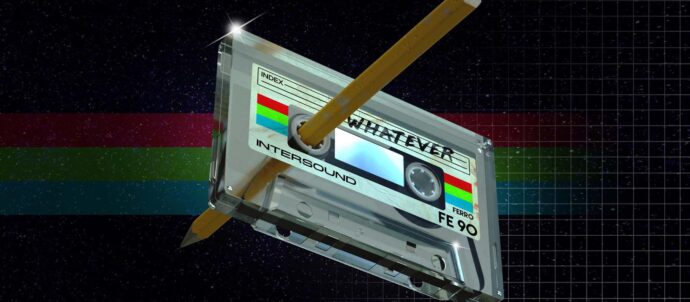

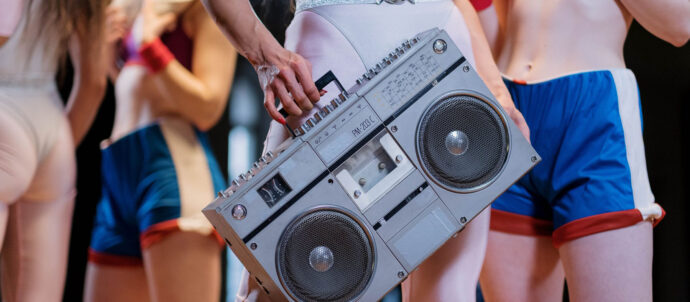
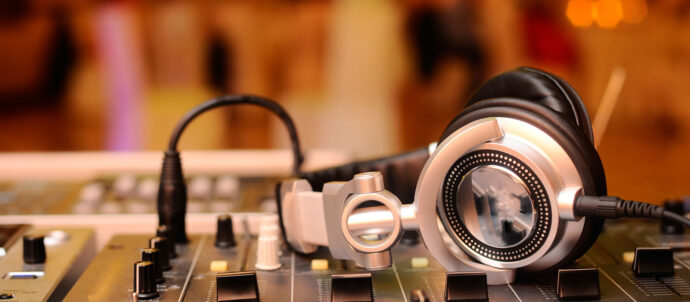
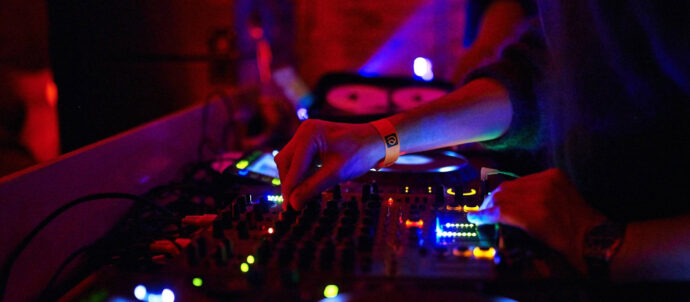



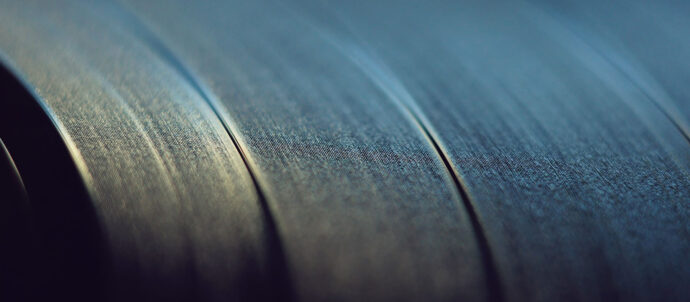
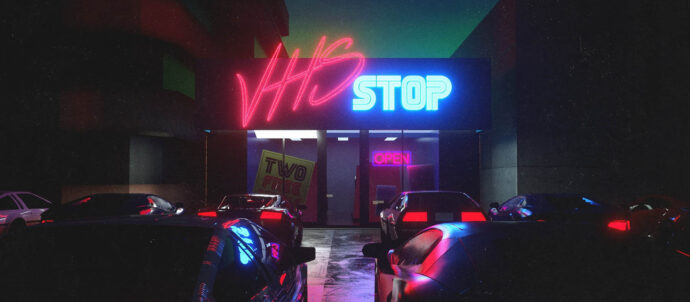
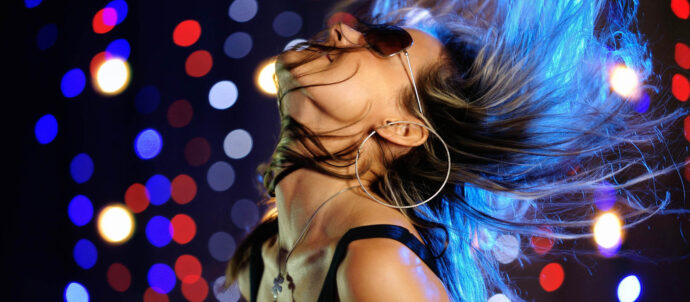
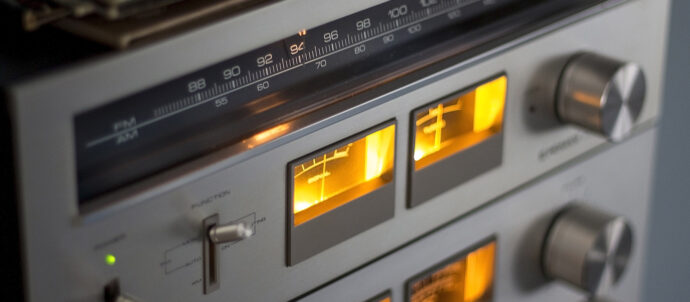
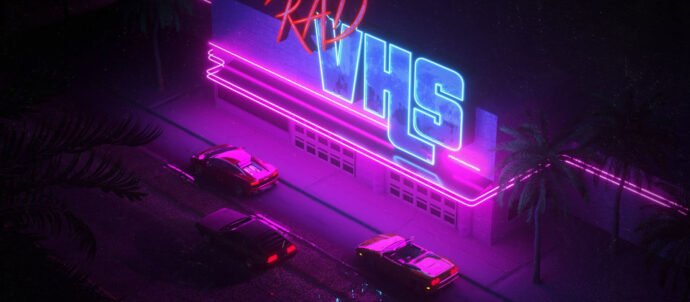
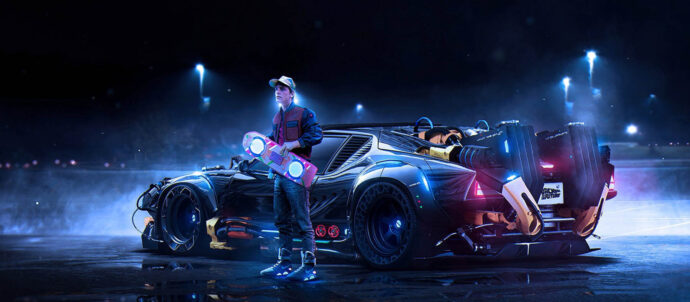
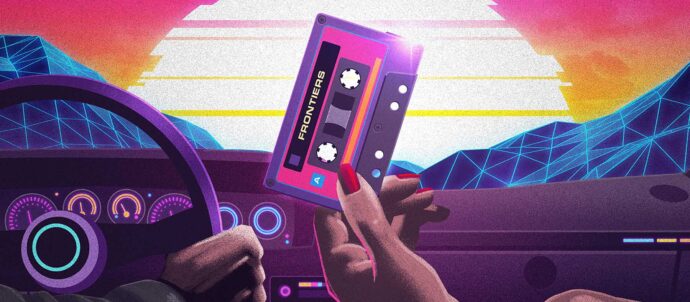
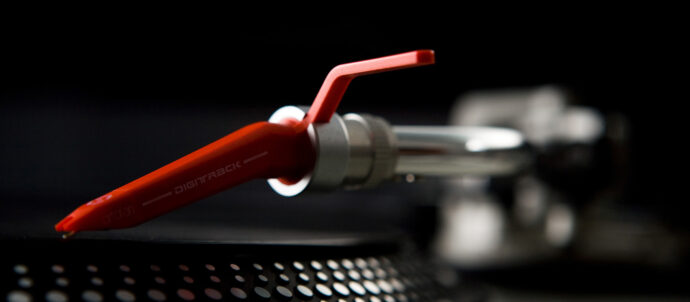

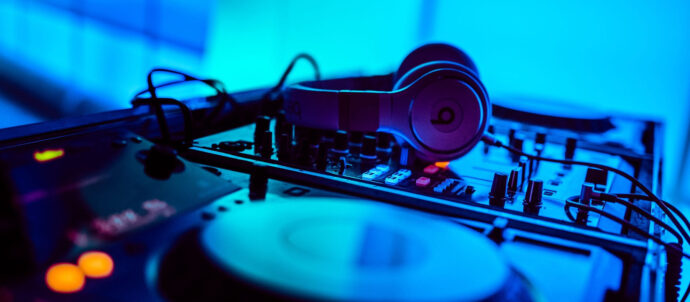
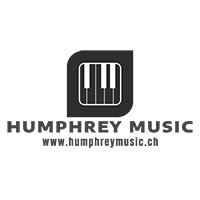

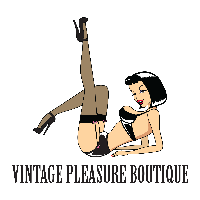
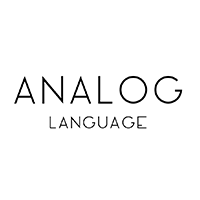
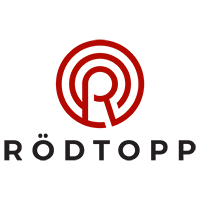
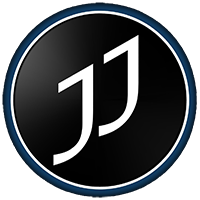
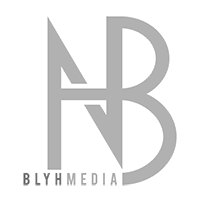

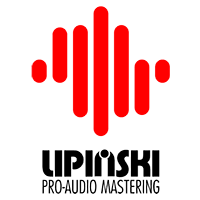



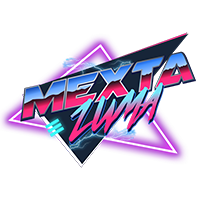

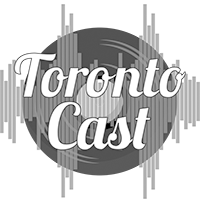
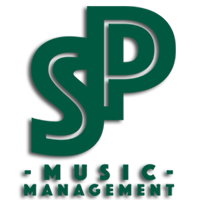
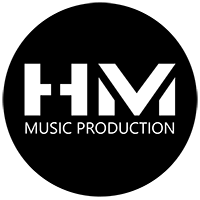
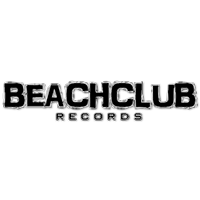
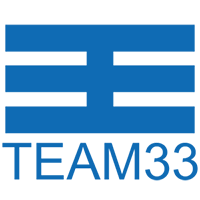

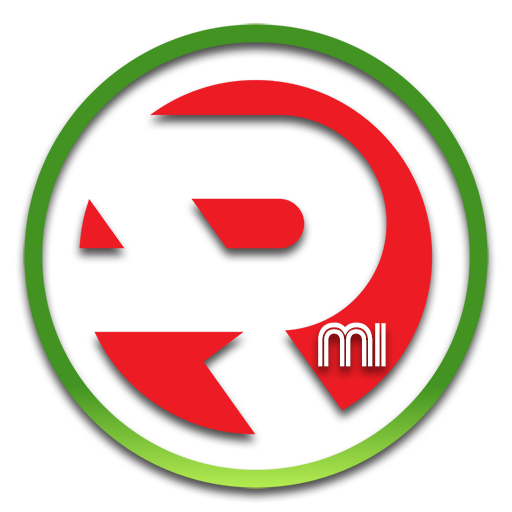
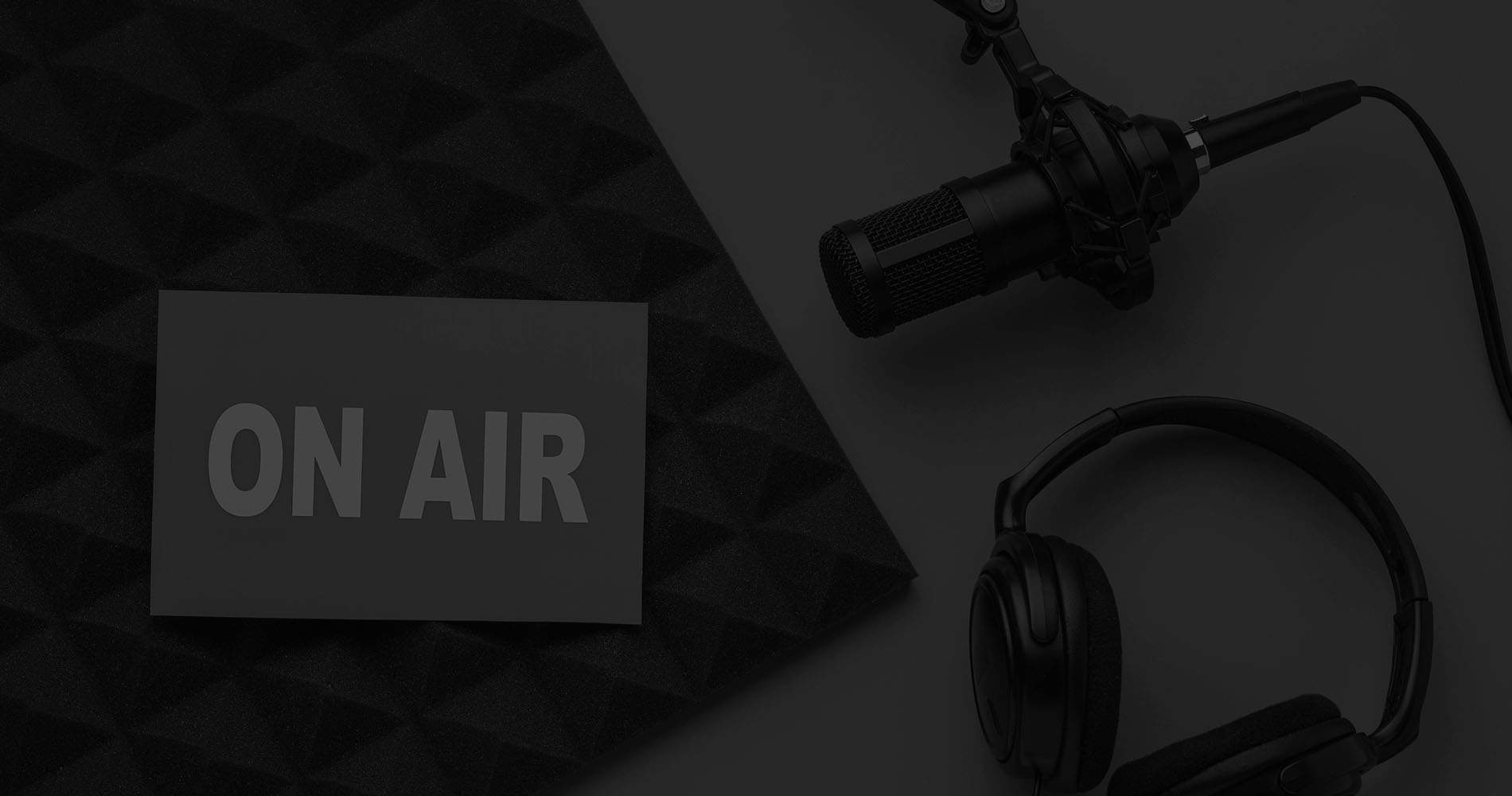
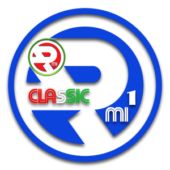
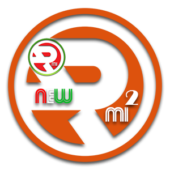 Italo Disco New Generation
Italo Disco New Generation 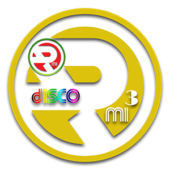 Euro Disco
Euro Disco